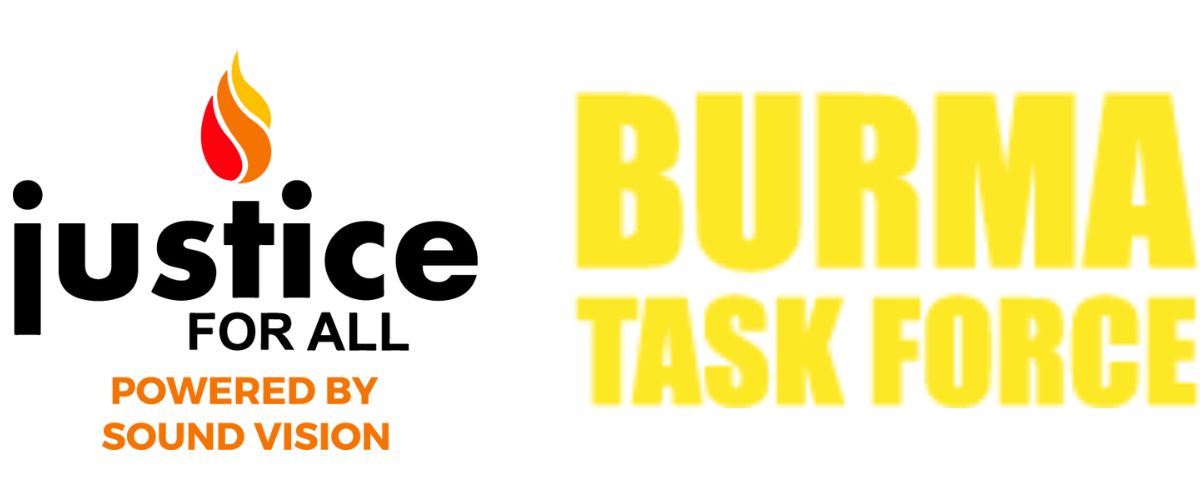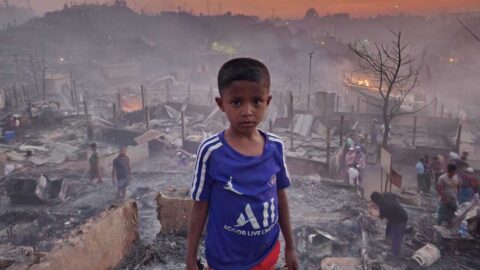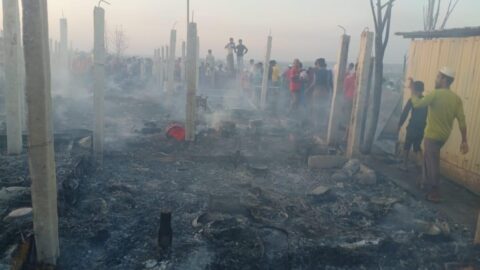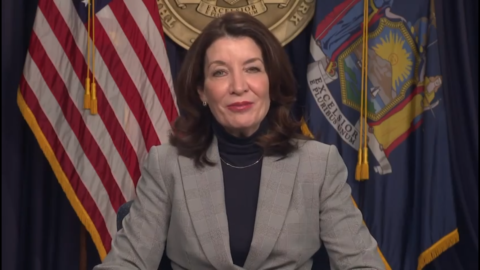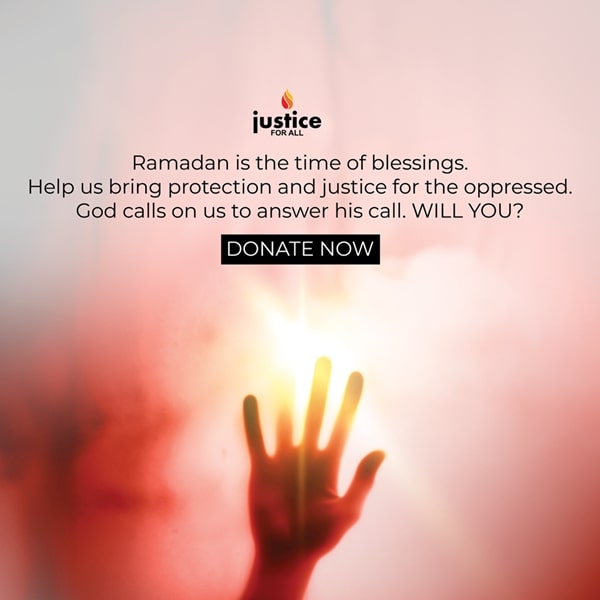According to Burma Task Force Staff on the ground, a massive fire swept through parts…
The Karen Struggle – Myra Dahgaypaw
With the many struggles Rohingya Muslims are currently going through in Burma, one other issue that we wanted to highlight today, that also deserves our attention, is the Karen struggle. Tens of thousands of Karen people have faced genocide, torture, and gang rape. Hundreds of thousands of civilians have been displaced throughout the course of the conflict, many of whom have fled to neighbouring Thailand and are still currently confined to refugee camps.
Guest:
Myra Dahgaypaw is a Karen human rights activist from Karen State, Eastern Burma. She was an internally displaced person and a refugee prior to resettling in the U.S. Since the age of 13, Myra has played a strong role in her community as an organizer and a human rights advocate. Previously, Myra worked as a human rights advocate at the United Nations with the Burma Fund United Nations Office. Prior to taking on the managing director position at ‘US Campaign For Burma’, she fulfilled the roles of campaign coordinator and policy advisor at USCB. By seeking justice and accountability, Myra hopes one day to see a unified country at peace once the crimes against humanity and unchecked impunity in Burma are put to an end.
Questions and Answers
Can you give a bit of history of the Karen people?
Prior to colonization, every ethnic group had their own territory, they had their own chiefs and independent territories. But, during the second world war, the Karen were seen as faithful allies of the British, along with many other ethnic groups. Near the end of WWII, the Karen asked for independent statehood, and the British promised this. When the war was over, however, the British said they would have to work it out with the majority Burman. The Burman did not trust the Karen as British allies. Even though the Karen were willing to negotiate after brutal treatment by Burman and Japanese, they eventually had to give up because the treatment was not stopping and it was clear what the relationship was going to be.
What religion do the majority of Karen follow?
The majority was Bhuddist. American Christian missionaries came and converted many of the Karen. A lot of the Karen who live closer to cities and towns where Burman majority lives, are Buddhist. The numbers are about 30-40% Bhuddist, 20-30% Christian, and a small minority of other religions.
How civically engaged are the Karen population and what is the advocacy goal in the U.S.?
Firstly, those who resettle in the U.S., around 60% of them came from very rural areas and a lot of them are illiterate. As such, they focus a lot on how to work and how to make a living to feed their family. A smaller group has had education in the refugee camps, but they still face things like language barriers, so they may have been teachers or medics in Thailand or even Karen state, but the language barrier makes it so they end up working in low paying jobs. Some are able to work their way up to jobs in their field. The younger generation is picking up pace and making their way up in education and job markets.
Comparing from then and now, the community is getting better about advocacy in things like education, health, and especially social welfare because it is important for the community.
What is the relationship that Senator Mitch McConnell has with Aung San Suu Kyi that is preventing the U.S. from work on the
Aung San Suu Kyi was willing to give up her freedom to stand up for the people in the late 80s. He admired her, but he does not, in my opinion, admire the overall suffering and the difference that people are making collectively. Compare this to the late Senator McCain, who admired Aung San Suu Kyi and understood the suffering of the people and the work of the people that had to be done collectively to get change done in the country.
If you could have your way, and things were going exactly as your goals wanted, what would you like to see happening this year for Burma and for the Karen people specifically?
The most important thing is safety and security. And the opportunity to have the basic rights that every other people have. The rights to education, rights to health, rights to live a normal life. These are the basic rights we are entitled to as human beings. If the government can consider the Karen population as well as every other ethnic group, as people of Burma, that would be a big step.
Secondly, if we are allowed to be citizens of Burma, meaning we are formally recognized with identification and some level of education and health, that the Burman majority in Rangoon have, that is an important thing. If the Burman army recognize them as humans, they will reconsider killing them indiscriminately. They will clear out land mines so people can return to their farms and homes and lives.
Quotes and Hashtags.
Being an internally displaced person meant life was unpredictable. You did not know what the next day, next week, or next month would bring.
At the time when Myra was a child, the situation in Karen state was fragile, and the Burmese army would come out looking for civilians that might have connection with the Karen army and capture, kill, and torture them. They could also be used as human shields.
When they came into the places where they were living, people would have to run with nothing but the clothes on their backs.
There were times they had to sleep in the rain. And while Myra, being younger, got to eat when there was little food, her older sister would have to go without. #AidKaren
Behind the scenes, while the front facing narrative was to negotiate with the Karen, the Burmese were secretly plotting to commit an ethnic cleansing on the Karen.
To a certain extent, the Karen people consider themselves freedom fighters, because they are fighting for freedom. They settled at the Muay River bank and established the Karen headquarters and it lasted a good twenty years. #SaveBurma #SupportKaren
They had their own education, health, and as many other departments that independent states have. They ran their own territory, where they had the ability to govern, but in early 1995, with assistance from the Karen Buddhist democratic army, they captured the headquarters and Myra had to become a refugee in Thailand.
Around 80-85% of Burmese refugees are Karen people. Upstate New York, Texas, and St. Paul, Minnesota areas are where a lot of the populations are concentrated. Some areas have had refugee populations longer than others.
Even though refugee populations might not have the time or resources to be as active in political advocacy themselves, they are always willing to help with advocacy.
If Trump had the will, he could enact the bills that President Obama suspended such as the Freedom and Democracy Act. He could continue putting the perpetrators on the trade sanctions lists. Congress could pass the bills but it is being blocked by Mitch McConnell. #GetInvolved #SupportKaren
Some refugees try to go back and forth to the Karen side from Thailand to see if they can reclaim their homes and farms. Some try to maneuver the Thai system and live two lives, one on the Thai side as a migrant worker, and the other in the refugee camps. #SupportKaren
With the impediments and boundaries, it is hard for NGOs and aid organizations to do much publicly to aid the Karen and other persecuted groups in the area. They either have to work within those boundaries or work discreetly so they do not get arrested in their line of activism.
The Burman majority, which has been in power since Burma’s independence, they’ve been ruling with the system of divide and rule. They are trying to put us in our own little box so we don’t know what is going on in the Western side or the Northern side of the country. Some people are unaware of other minority populations. If they fight everyone at once, they cannot win, so the Burman army keeps them apart and fights each group piece by piece by piece. #ComeTogetherAndConquer.
